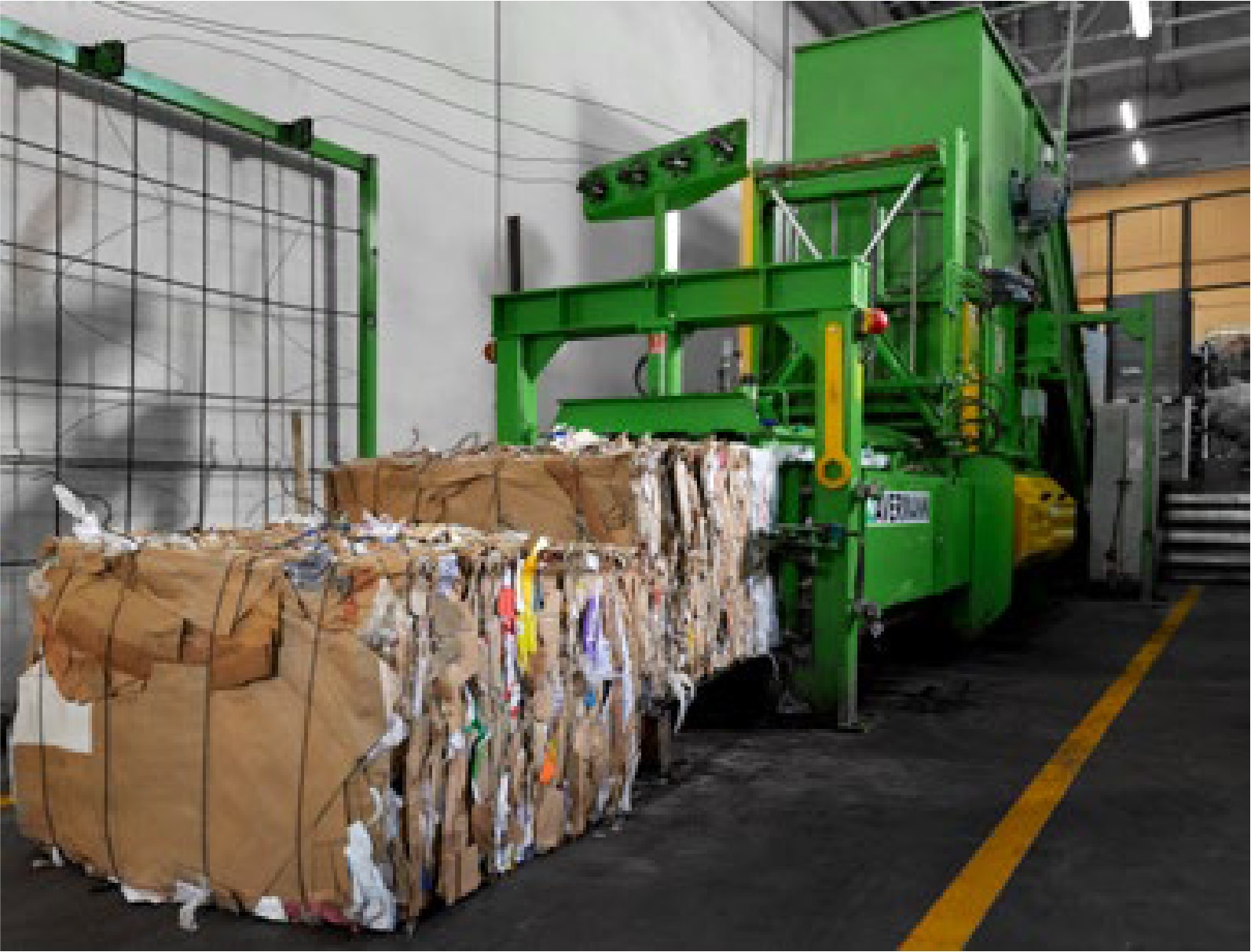Chain waste
Packaging is the key source of waste for a retail chain. This is mostly cardboard, polyethylene film, plastic crates for fruit and vegetables, and wooden crates. The way we handle and dispose of each of these kinds of waste depends on the type and composition of their materials.

In the reporting year, the share of hazard class 1 and 2 waste in the total waste generated by the Magnit Group was 0.0057%. Waste generated in 2022 totalled 1,150,670.89 tonnes.
Plastic waste management
GRI 301-2 GRI 301-3
Most of Magnit’s packaging waste is plastic. We understand the complexity and severity of plastic pollution.
To reduce our impact, we decided to achieve 100% collection and recycling of plastic waste generated by Magnit’s operations. In 2022, the retail chain generated 35,549.07 tonnes of plastic waste, of which 45% (16,134 tonnes) was sent for recycling, up 18.9% YoY.
In 2022, Magnit, together with the non-profit association of manufacturers and retailers ECR Russia and the Russian Retail Marketing Association (POPAI), which brings together developers and customers of promo materials, started developing industry guidelines to create sustainable or eco-friendly promo materials. These will cover the entire lifecycle of advertising media, from design to proper recycling. Experts will present proposals for sustainable production and handling of promo materials. The initiative will help reduce the generation and disposal of waste in the long term. We anticipate that as soon as 2023, customers will see new advertising media at Magnit that will reduce our environmental footprint. General guidelines for sustainable advertising materials are planned to be made publicly available in 2023.
A pre-packPre-packs are basically pre-packaged products. is a product package that is a nicely branded portable display case with products already stacked. The manufacturer delivers pre-packs directly to the store, where it is placed in the sales area without any additional layout. As a rule, these promo materials are not recyclable, as they contain plastic, metal, and even concrete parts, which damage cutting edges and presses in recycling plants. Together with major suppliers of goods and producers of promo packaging, Magnit is developing Russia’s first voluntary standard for recyclable and green pre-packs. It will be included in the industry-wide guidelines, which are currently being drafted by ECR Russia, a non-profit partnership of manufacturers and retailers. The standard will apply to racks, price tag holders, laminated and other promo items – under the guidelines, those will be made entirely from recyclable cardboard or other sustainable materials. We intend to switch to fully recyclable pre-packs within the next two years.
We continue to reduce our reliance on cardboard racks (pre-packs) and replace them with reusable ones. Starting from 2020, Magnit has ran six nationwide loyalty promo campaigns using new metal racks. Each has a lifespan of approximately three years, and can be fully recycled afterwards. This has enabled us to abandon 135,000 cardboard and plastic racks and reduce the Company’s cardboard and plastic waste by 810 tonnes.
In the reporting year, we opened the first separate waste collection point at our hypermarket in Novosibirsk. We have created convenient infrastructure that will help city residents send their waste for recycling. Magnit’s eco-point accepts the most common types of plastic: bottles and containers for beverages, household chemicals and cosmetics, bags, as well as aluminium and tin cans, glass, paper, cardboard, and Tetra Pak packaging.